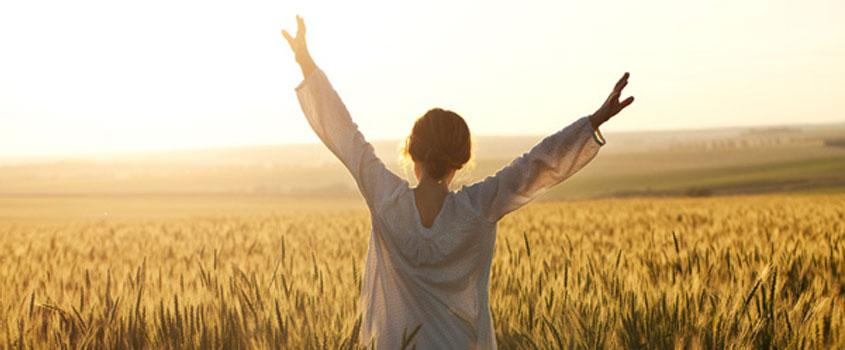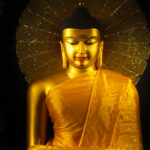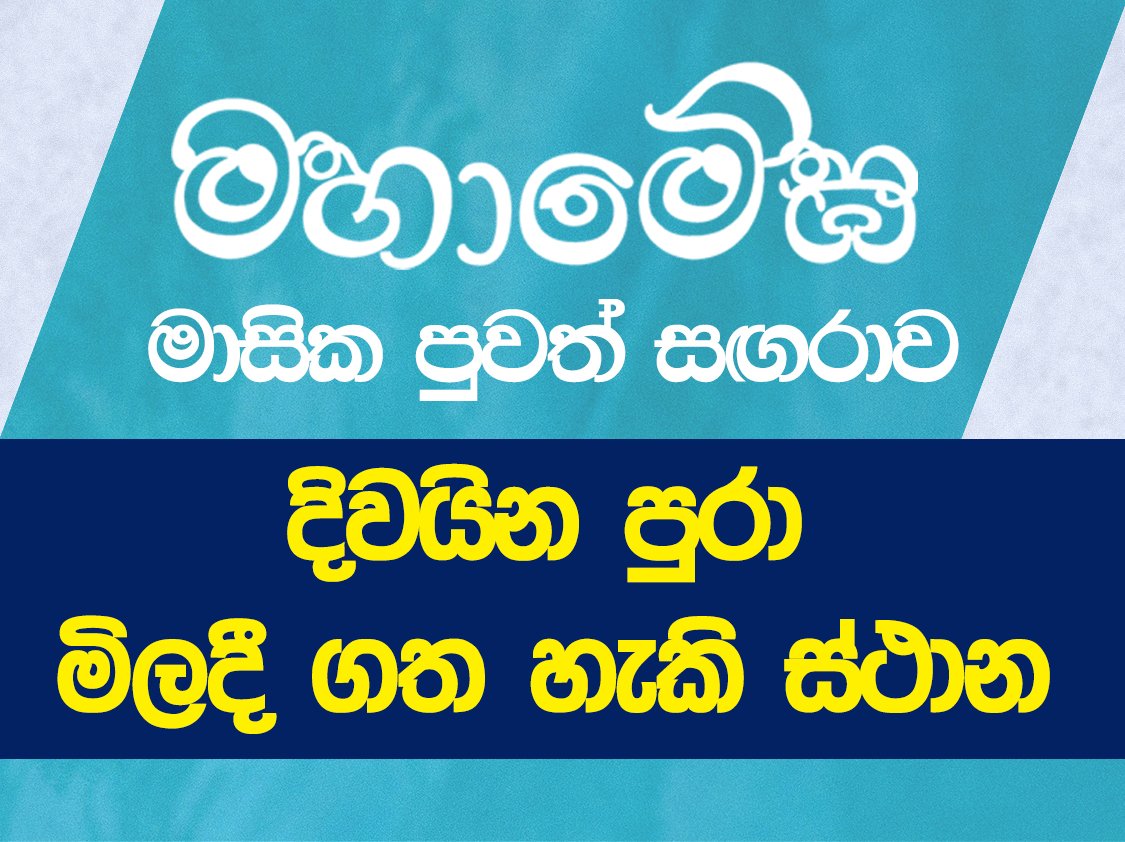During our lifetime, we travel to many places. We go to see family and friends. We go on pilgrimages to pay homage to holy places. We go on vacations to relax and enjoy nature. Most of us even cross the ocean and visit different countries. When we decide to leave home for a few days or even one night what do we do in advance? We get ready for our trip in advance. In fact, these trips can be planned according to our time and liking. We can decide on dates. Once we know we are going, we get ready. However, there is an inevitable journey that we all must go, timely or not, whether we like it or not and whether we want or not. That is the journey of leaving this life and going to the next. This is the biggest journey of all. And we all know that we are going on that, yet do we get ready for that in advance?
We are very careful when we select our trip destinations. Unless it is to see family and friends we do a lot of things before setting off. We find out about the place, we arrange transportation, we prepare cloths accordingly, we check with those who live near to where we are going and we may also prepare food to eat on the way. A trip abroad requires more attention than a local one. Starting from tedious procedures followed to obtain visas, until we are picked up at the airport we organize everything carefully. Why are we doing this? We do this because we like to be comfortable at our destination. We want to be accepted and happy at our destination. Now, are we thinking the same about our next life? Are we doing enough to be comfortable in our next life?
The comforts at our destinations depend on our wealth. If we have lots of money then we can enjoy fancy hotels, good food and many things we like. But if we are not well-off our comforts and happiness will be limited. And if we are very poor, then we will not have any comfort at all. Similarly, if we want to be comfortable and happy in our next life we need to take wealth with us. What wealth can we take to our next life? It is the wealth of ‘merits’ we collect during this lifetime.
The Supreme Buddha commended meritorious deeds again and again. The most compassionate teacher asked us to collect merits by doing 10 wholesome deeds.
- Generosity – giving away of tangible or intangible things you own for the benefit of others.
- Morality – disciplining your body, speech and mind in order to prevent hurting others.
- Meditation – developing your mind to attain high concentration levels.
- Transference of merit to others who are in need of merits.
- Rejoicing in others’ merit.
- Render service to holy places and righteous people.
- Revere the righteous people who deserve veneration.
- Listening to the Buddhist doctrine in order to understand the Four Noble Truths.
- Expounding the doctrine with compassion.
- Straightening one’s views according to the doctrine.
The comforts in the destination of our inevitable journey depend on merits. However, the biggest problem in us is that we forget that we die and that prevents us from being diligent in meritorious deeds. The Supreme Buddha resolved that by encouraging the disciples to practice Marananussati – recollecting on death as often as possible. Similar to scanning through the checklist of your trip to make sure everything is well organized, marananussati helps us scan through our lives, resulting us to be heedful in the practice of the noble Dhamma.
More interestingly, the Supreme Buddha also said that one can secure his next life by choosing a good destination to be born in next life. Such wielding, however, can only be done by a disciple of the Supreme Buddha who is established in Sekha Bala, namely; Saddha -faith, Seela -virtues, Sutha -learning, Càge -benevolence and Pannà -wisdom. How does such a disciple accomplish such security is expounded in Sankhàruppatti sutta -the discourse on arising of intention in Majjima nikaya, by the Supreme Buddha.
“Idha bhikkhave, bhikkhu saddhàya samannàgato hoti. Seelena samannàgato hoti. Sutena samannàgato hoti. Càgena samannàgato hoti. Pannàya samannàgato hoti. Tassa evaü hoti: aho vatà ayan kàyassa bhedà parammarana khattiyamahàsàlànan sahavyataü upapajjeyyanti. So tan cittan dahati, tan cittan adhitthàti, tan cittan bhàveti. Tassa te saïkhàrà ca viharà ca evan bhàvità evan bahulãkatà tatråpapattiyà saüvattanti. Ayan bhikkhave, maggo ayan pañipadà tatråpapattiyà saüvattati.”
The Supreme Buddha explains; a bhikkhu who is endowed with confidence in the Buddha, who is endowed with virtue, who is well-versed in Dhamma that has been acquired by listening, who is bent towards generosity and who is endowed with insight, forms a liking thus; oh I would like very much to be born in a good royal family at the break up of this body, after death! He establishes his mind in the human world and that becomes his intention. He develops that intention. That intention and abiding conduct developed greatly, conduces a birth in a royal family, after death. This is the path this is the method to be born in a royal family in the human world.
This discourse reveals that if someone is practicing Dhamma and has secured his present life in sekha bala, can indeed secure his next life as well. That gives such a relief to everyone who is endowed with sekha bala. Further, it gives the opportunity to anyone who is not established in sekha bala to hasten in the Dhamma practice to acquire them.
What are the five sekha bala? Saddha is having a whole-hearted confidence in the Buddha; believing in the supreme enlightenment of the Buddha.
Seela is virtue. A lay disciple has five precepts to govern his life. In fact, one becomes virtuous upon taking refuge in the noble triple gem.
Next is Sutha, be well-versed in the noble Dhamma after listening to discourses. Without listening to the teachings of the Buddha it is not possible for anyone to know that we are all trapped in a cycle of birth and death and that journey is full of dangers. Moreover, that there is an escape from this cycle and that there is a path to freedom can only be learnt if he listens to the Dhamma.
Next sekha bala is Càge. Càge is being generous and leading a life to abandon greediness. When giving something, it must properly prepared, it should be given with respect to the receiver, should be given by your own hands, should be given useful things and with an understanding of merits of being generous.
The final Sekha bala is Pannà. It is the wisdom required to realize the Noble Truths. In fact Pannà starts with the knowledge of what is wholesome-kusal and what is unwholesome-akusal. Any wise person who understands those, endeavors to abandon akusal and cultivates kusal. Subsequently, he tries to realize the impermanent nature of everything by following the methods shown by the supreme Buddha.
Moreover, in this sutta the supreme Buddha reveals that a disciple with sekha bala can secure his next life in any heavenly world or any bhrama world he prefers. Upon learning about the gods in different heavenly worlds, he chooses a heavenly world to be born. Thereafter, he establishes his mind upon that world and develops his intention by accumulating merits. Subsequently, his developed intension and conduct takes him to the world of his preference after death. In other words, he accumulates kamma that would secure him a birth in the world he likes. This cannot be done by a mere wish or a by bragging. To achieve such security one has to follow the required path.
Furthermore, the supreme Buddha expounds that if a disciple endowed with sekha bala intents not to be born anywhere again but to attain the ultimate deliverance of Nibbana, he can accomplish that too in the same manner. There, his intention and abiding is placed on Nibbana.
Sankhàruppatti sutta shows how having intentions, directing thoughts to them, and developing those thoughts and conduct leads to the flowering of those intentions. However, it is only achievable by a disciple endowed with Sekha bala. Therefore, we need to realize the importance of being established in sekha bala and we should contrive to achieve that. It is a process of accessing ourselves with wisdom and perseverance in addition to doing what is required to fulfill the sekha bala.
In summarizing the above, as disciples of the Supreme Buddha who are fortunate to hear the noble Dhamma we should not narrow our lives to rejoice only in this life. As much as we struggle to find comforts and security here, we must think and act upon finding comfort and security in our next life before it’s too late.
By Prajapathi Wijesinghe
In memory of my father who passed away in December 2013














Recent Comments